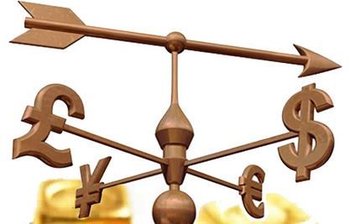Most analysts in Europe predict that the US dollar will continue rising for at least the next two years. Its relentless increase was evident today as it exceeded 110 yen for the first time since 2008 and hit a four-year high against virtually all the major currencies.
In early trading in Europe, the dollar hit $1.25 to the euro, which was a two-year high.
The BBC quotes Chris Turner, head of strategy at ING who said of the dollar “It’s come a long way, pretty quickly. I think a 5% advance over the next six months is very achievable.”
Since the beginning of May, the US dollar index has risen almost 9%, as investors’ expectations that the Federal Reserve will raise interest rates increase. Add to this the wobbly growth data coming out of China, Japanese consumer demand that has dried up since its sales tax hike in April, and a Eurozone GDP standstill, and it is clear why the dollar is the obvious choice.
The dollar is expected to continue rising, so is the pound, while the yen and euro will fall.
Fed and ECB diverging
The Fed and ECB (European Central Bank) are moving in opposite directions. While one (Fed) is looking at tightening policy the other (ECB) is going completely the other way.
In September, the Fed confirmed that its stimulus program would be completely wound down in October 2014.
Germany’s 10-year bonds were selling today with a yield of less than 1% for the first time, reflecting Europe’s economic standstill and the extra steps the ECB will likely take to bolster growth.
Most analysts agree that the currencies expected to face the greatest pressure from the dollar’s rise are the euro and yen.
In September, the euro fell by almost 4% against the dollar, its largest fall in over two years. With inflation edging alarmingly near zero and GDP growth gone, the European currency is only going to go in one direction – downward.
Mario Draghi, President of the ECB, and colleagues would prefer a weaker euro, so that exports may become more competitive. A weaker euro would also push up inflation.
When the ECB meets on Thursday (tomorrow), most investors expect it to keep interest rates where they are. However, what ‘unconventional instruments’ Mr. Draghi may use is anybody’s guess.
The pound sterling is likely to follow the dollar. Among the advanced economies, UK GDP is growing the fastest. The Bank of England’s Monetary Policy Committee is already split on when to raise interest rates. There is talk of a rate hike this year. However, the Eurozone is Britain’s main trading partner, and a threatening housing bubble could change the country’s business environment rapidly.

